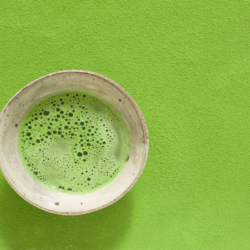Carbohydrate metabolism, made up of a series of biochemical processes, regulates the synthesis, absorption and breakdown of carbohydrates in the body. An imbalance in this system can lead to various neurological changes and metabolic disordersdiabetes being the most common. The summer period, often characterised by an increase in the consumption of sugary and calorific products, can disrupt this delicate metabolism. The Glucidic Metabolism Herbal Tea from Iphym offers a phytotherapeutic alternative for rebalancing blood sugar levels. Let’s take a closer look at the benefits of this herbal tea for balancing blood sugar levels!
Summer excesses and their impact on carbohydrate metabolism
Summer is often a time when dietary habits are relaxed, and all kinds of excesses are encouraged, particularly when it comes to carbohydrates. Barbecues, aperitifs on the terrace and ice creams on the beach are all occasions when sugar and carbohydrate consumption can soar. Although these moments of relaxation are enjoyable, they can have significant consequences for carbohydrate metabolism.
Impaired carbohydrate metabolism
Each time we ingest carbohydrates, they are converted into glucose, which is then used by our cells to produce energy. Insulin plays a key role in this process, allowing glucose to enter the cells. However, over-consumption of carbohydrates can lead to insulin resistance, making this mechanism less effective. In extreme cases, this can lead to a disorder of carbohydrate metabolism, such as type 2 diabetes.
Effects on blood sugar levels
Excess carbohydrates, especially those with a high glycaemic index, can lead to blood sugar spikes. High levels of glucose in the blood can be harmful in the long term, damaging blood vessels and organs.
Disruption of energy storage
Normally, excess glucose is stored in the liver and muscles in the form of glycogen. However, in the event of continuous over-consumption, these reservoirs can become saturated, forcing the body to store excess glucose in the form of fat.
Post-summer recalibration: The benefits of Carbohydrate Metabolism Herbal Tea
After a season of excess, it can be beneficial to take steps to recalibrate your metabolism. Preparations such as Carbohydrate Metabolism Herbal Tea can help regulate blood sugar levels thanks to botanical ingredients such as knapweed, bilberry and olive.
Mechanism of action of the botanical components of carbohydrate metabolism herbal tea
Understanding how an herbal tea works at a molecular level may seem complex. However, it is essential to know the mechanisms of action of botanical ingredients in order to assess their potential effects on health. In the case of Iphym’s Carbohydrate Metabolism Herbal Tea, the main ingredients are knapweed, bilberry and olive. Let’s take a look at their individual actions and how they can help regulate your carbohydrate metabolism.
Knapweed (50%)
Centaury is rich in beneficial properties for the digestive system:
- Eupheptic: In simple terms, this means that knapweed aids digestion by stimulating the enzymes that break down food. It’s like having an assistant in your stomach that helps process food more efficiently.
- Stomach upsets: If you have stomach upsets, knapweed can be your ally. It helps to improve the movement of your stomach and reduce cramps.
- Glucose regulation: This plant contains elements that can help maintain stable blood sugar levels, which is essential for avoiding conditions such as diabetes.
Cranberry (25%)
Cranberry plays several roles in this herbal tea:
- Hypoglycaemic: Simply put, cranberry helps to reduce blood sugar levels. This is particularly useful if you’re trying to control your blood sugar levels.
- Diuretic: This fruit also has the added benefit of helping to eliminate toxins from your body by encouraging the production of urine. After a summer of excess, this can be very beneficial.
Olive (25%)
Finally, the olive tree is a versatile player in this herbal tea:
- Insulin stimulation: Olive helps your pancreas produce more insulin, the hormone that allows your cells to absorb glucose. The more insulin there is, the better your body can manage sugar levels.
- Cardiovascular benefits: Olive is also known for its effects on cholesterol and blood pressure, which is a plus for overall heart health.
Directions for use
Carbohydrate Metabolism Herbal Tea is a complex formulation designed to optimise carbohydrate metabolism. In order to fully exploit the clinical benefits of the active ingredients, a specific dosage and infusion protocol are recommended.
Dosage and preparation of the infusion
The recommended dosage to maximise clinical efficacy is 1 to 2 infusions per day. It is crucial to infuse for 10 to 15 minutes in boiling water. This time allows optimal extraction of the plants’ active compounds, ensuring their metabolic efficacy. It is strongly recommended to prepare the infusion at the time of consumption to guarantee the stability and effectiveness of the active ingredients.
Contra-indications and precautions
- Gastrointestinal effects: One of the active ingredients, knapweed, is known for its properties on the digestive system. Although it aids digestion, centaury can also induce gastrointestinal disorders in some people. In cases of digestive sensitivity or pre-existing gastrointestinal pathology, medical supervision is recommended when consuming this herbal tea.
- Medical consultation for Comorbidities: If you are currently undergoing medical treatment for conditions such as diabetes, hypertension or cholesterol disorders, medical consultation is strongly advised before including this herbal tea in your daily diet.
- Allergic reactions: Although rare, allergic reactions to the herbal tea’s ingredients cannot be ruled out. If you have a history of allergies to medicinal plants, prior consultation with a health professional is recommended.
Effective prevention of blood sugar disorders
In a world where blood sugar disorders such as diabetes are becoming increasingly prevalent, it is crucial to understand how to prevent them effectively. Prevention is based on a number of pillars, including a balanced diet, regular physical activity, weight and stress management, and adequate sleep.
The importance of a balanced diet
A balanced diet plays a key role in regulating blood sugar levels. We recommend giving priority to foods with a low glycaemic index and incorporating healthy fats into our diet. Wholegrain products, vegetables and sources of good fats, such as vegetable oils, oily fish and avocados, are good choices for keeping blood sugar levels stable.
Physical exercise, a major ally
Physical activity is a powerful tool for managing blood sugar levels. Moderate but regular exercise, such as walking, cycling or swimming, not only helps to lower blood sugar levels but also improves insulin sensitivity. It is advisable to aim for at least 30 minutes of daily physical activity to benefit from these effects.
Managing weight and stress
A healthy weight helps to reduce the risk of blood sugar problems. Similarly, stress has a direct impact on our blood sugar levels. Effective stress management techniques and a healthy lifestyle can therefore play a beneficial role in preventing diabetes.
Restorative sleep
Lack of sleep is often underestimated as a risk factor. A good night’s sleep is essential for maintaining hormonal balance and can help regulate blood sugar levels.
Knowing and managing risk factors
It is also important to be aware of personal risk factors, such as family history, age and membership of certain ethnic groups. Regular visits to the doctor allow these risk factors to be monitored and appropriate preventive measures to be taken.
In conclusion, the prevention of blood sugar disorders is based on a set of healthy, balanced practices. A controlled diet, regular exercise, good weight and stress management and adequate sleep are the keys to maintaining stable blood sugar levels and reducing the risk of diabetes.







